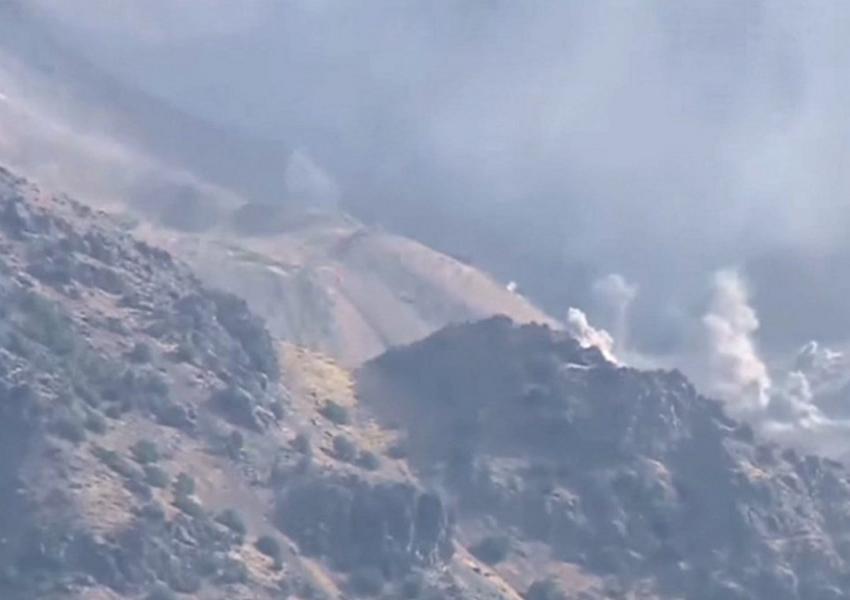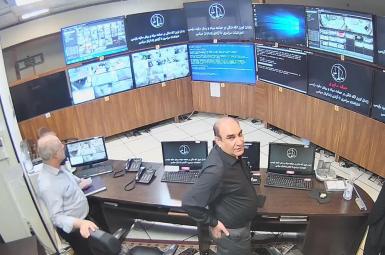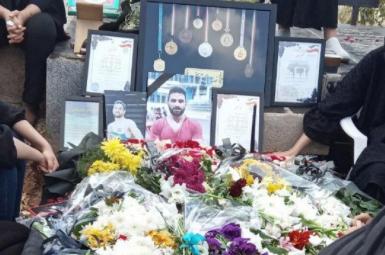
Is Tehran Readying An Assault On Iranian Kurdish Groups In Iraq?
Iran’s Revolutionary Guards (IRGC) Friday continued to pound positions of armed Iranian Kurdish groups based in areas of northern Iraq under the control of the Kurdistan Regional Government (KRG) based in Erbil.
Kurdish media had Thursday reported bombings by fighter jets and drones in Sidakan, Choman, and Haji Omran. No casualties were reported.
"In this operation, the headquarters of those conspiring against Iran's national security were destroyed," the Revolutionary Guards claimed in a statement Thursday.
The Erbil-based Hengaw Organization for Human Rights Friday said Iranian military forces were present in strength in Kurdish towns on the Iranian side of the border where mobile phones and the internet had been disrupted. Hengaw posted a video on its Twitter account allegedly showing a 'suicide drone' attack on Thursday.
Neither the Kurdistan Regional Government nor the Iraqi government has yet reacted to the Iranian attacks.
Abdollah Mohtadi, Secretary-General of Komala, a leftist Iranian Kurdish group based in Kurdish Iraq, told Iran International TV Thursday that Tehran aimed to put pressure on the KRG to expel the Iranian Kurdish groups.
Also speaking to Iran International TV on Friday, Shahram Mosulchi, a journalist, said the KRG preferred to urge both sides to avoid confrontation given the importance of political, security and economic relations with Iran.
Iranian forces have for decades carried out cross-border attacks on Iranian Kurdish groups training and organizing peshmerga fighters in northern Iraq. The Kurdish groups in turn have carried out sporadic attacks while maintaining a presence inside Iranian Kurdistan.
Generally Iraqi Kurdish parties have tolerated the groups’ presence as long as they do not provoke a violent reaction from Tehran.
Among those holding bases, with varying degrees of tolerance from the Iraqi Kurdish parties and the KRG, are the Kurdistan Democratic Party of Iran (KDPI), and Komala, both of which want Kurdish autonomy within Iran.
A third group, Pejvak, or the Party of Free Life of Kurdistan, is linked to the pan-Kurdish group, Kurdistan Workers Party (PKK), which also has an affiliate in Syria.
At a meeting with visiting Iraqi Foreign Minister Fuad Hussein August 10, Ali Shamkhani secretary of Iran's Supreme National Security Council, urged Baghdad to expel the Kurdish groups or expect Tehran to take "preventative measures." Iraqi Prime Minister Mustafa al-Kadhimi is due to visit Iran Sunday.
On Monday [6 September], the commander of IRGC ground forces, General Mohammad Pakpour, visited the border area and said Tehran had complained to the Kurdish authorities and Baghdad about the freedom of movement of peshmerga near the borders.
Pakpour warned of a strong response from Iran and urged civilians to keep away from the headquarters of the Kurdish groups in the coming days to avoid danger.
There has been speculation as to whether Tehran’s saber-rattling is part of a long pattern of pressing the Iraqi Kurdish parties to more closely control their Iranian cousins or a sign of a looming more serious effort, possibly coordinated with Turkey to seriously weaken the rebel groups. In recent weeks, Iranian security has arrested scores of Kurds.
Three years ago Iran fired ballistic missiles at the KDPI headquarters in Koysanjak, northern Iraq, killing at least 16.









